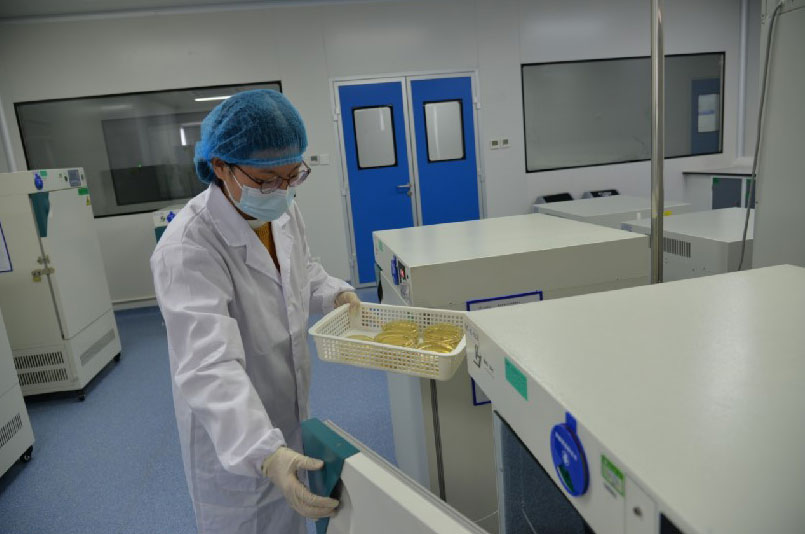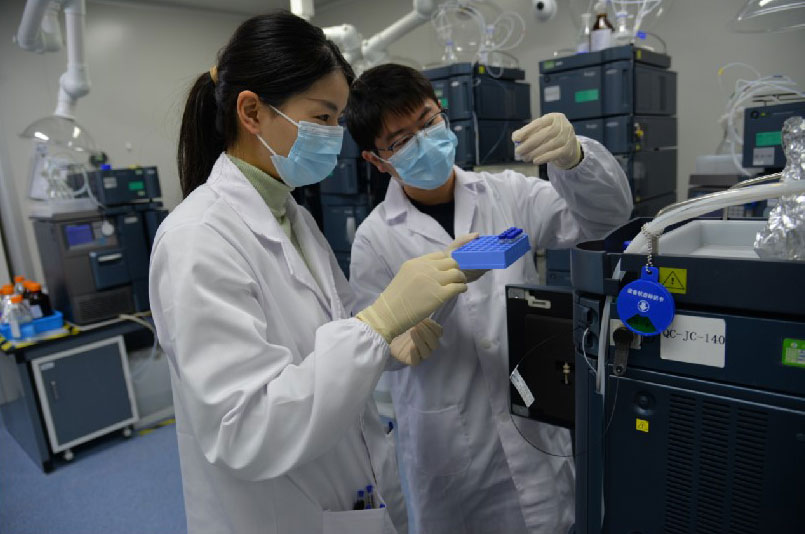Mabpharm Limited has always adhered to the quality policy of “Quality Leadership, Technology Wins, Continuous Improvement, and Pursuit of Excellence.” We implement quality management responsibilities across all processes of the product life cycle. We prioritize the rights and safety of clinical trial participants and are committed to providing patients and customers with products of outstanding quality and considerate, meticulous services.
Mabpharm Limited adheres to a quality control philosophy that aligns with the world's leading standards. We design and construct production lines according to international standards, and equipping them with intelligent and digital production and testing facilities. Our comprehensive quality control system covers the entire drug lifecycle, spanning development, production, quality control, product release, storage, transportation, and post-marketing monitoring. Coupled with strict quality testing and risk monitoring systems, we ensure product quality and safety, safeguarding patients' lives and health.


Mabpharm Limited promotes a quality culture centered on integrity. We require employees to uphold their quality responsibilities by prioritizing product safety and efficacy, patient safety, data integrity, and maintaining trust with stakeholders.

Mabpharm Limited has an efficiently operating Quality Assurance Department responsible for approving, organizing, and coordinating quality control and quality assurance procedures across all subsidiaries. Facilities and equipment must undergo a joint registration system, factory acceptance, site acceptance, installation qualification, operational qualification, performance qualification, and regular maintenance checks throughout their entire lifecycle.
We have established a drug lifecycle management system that covers stages such as clinical research, registration, procurement, production, and marketing to ensure the safety and controllability of product quality throughout its entire lifecycle. During the clinical research stage, we implement quality management based on the risks identified in clinical studies to ensure compliance with regulations at all stages of clinical trials. In the production stage, we strictly control production quality in accordance with Good Manufacturing Practices (GMP) requirements. We test products and materials according to relevant standards and strictly manage the material supply chain to ensure product stability and material quality.

Drug Development and Design
Conduct a comprehensive drug quality and safety risk assessment, considering factors such as drug characteristics, toxicology research, and clinical research. Determine the critical product quality attributes and critical process parameters, establish the process design space, process control indicators, and final product quality standards, and lay a solid foundation through rigorous R&D design.
Drug Technology Transfer
The drug knowledge, technology and related products and processes are transferred from the drug development stage to the production stage. Improvement opportunities are continuously identified and evaluated, process technology or routes are optimized, and process verification is strictly implemented to ensure the safety, stability, and reliability of the drug production processes.
Commercial Production of Drugs
Establish a scientific and perfect quality management system that assesses risk during drug production and quality control processes, considering all aspects such as personnel, equipment, materials ,protocol, and environment. Take corrective and preventive actions, regularly review risk controllability, and continuously improve the quality management system to control drug production quality risk, ensuring the safety, efficacy, and quality of the drug.
Post-marketing Monitoring
Strictly fulfill the primary safety responsibilities, establish an effective pharmacovigilance management system, and adhere to the drug risk management plan. Conduct post-marketing clinical trials to further confirm the safety, efficacy and quality of the drug, minimize drug safety risk, protect and promote public health, and ensure the management of the drug throughout its whole life cycle.




